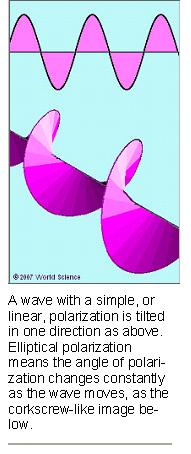from Something Cool News
Like most people with a functioning brain, I too have wondered about the mystery of the disappearing sock. You know, the one you put in the dryer with a bunch of other socks and yet, without exception or explanation, it always goes missing. No matter where you look or what you do, the sock goes missing. Every time. Some of the greatest minds of our generation have been unable to explain the enigma of the disappearing sock.
Except, it would seem, for one James Breckenridge. Breckenridge, the subject of this week’s mini-documentary Changing Lanes, had the opportunity to espouse his wisdom to me at a Starbuck’s in Abbotsford where he had been invited to partake in a coffee with his good friend Vince Dimanno. It was within the confines of this little establishment that he explained his theory to me, also an invited guest.
“In order to understand where these socks go,” he said, “we need to conduct a study, raise some funds so we can get a bunch of dryers which we can then experiment with. Once that process is complete, we need another set of dryers to try and replicate our results. After that, we need to invest in acquiring some experts to analyze those results. And then…”
It went on like this for a little while until the search for the missing sock was costing something like three billion dollars. It was a parable of course, a metaphor for the way government works. Rather than simply solve a problem, the wisdom of our modern day politicians seems to be to first study the problem, hold a never-ending series of conferences, write a number of reports and assessments and then start all over again, costing the taxpayers innumerate sums of money yet getting no closer to an actual solution to whatever the original problem was.
Now, two things struck me as I listened to James speak on this weighty subject. Firstly, how right he was. And secondly, how he was even able to tell this story given his current situation. For those not in the know, James is homeless and has been living in his car for the past few weeks. He was laughing and making wisecracks as he spoke, and I recall wondering how a man reduced to sleeping in the front seat of his car could find anything funny. Yet there he sat, chuckling at his own joke.
See, if I were James Breckenridge I’d be a very angry, angry man. This is a guy who has championed the homeless and worked tirelessly for them during his time at the Salvation Army Shelter where he works. And when not working, he has written extensively on his blog and to local newspapers, doing everything he can to raise awareness on the issue. Even now, homeless and alone, he is working on a way to get to Kamloops to attend a housing conference there or some such thing. He’s going to class to learn how to better help other people even as he himself needs help. Who is this guy?
And what result has James garnered for all this virtuous work? A giant goosegg, that’s what. He wrote a letter to local newspapers – a letter that was actually published – but not one of his friends/acquaintances stepped forward to offer him a place to live. These are the same people James tries to help when he can and defends when someone speaks ill of them. Even though some of them have a couch or a spare room they could lend, they remain silent and allow James to sleep in his 1987 Plymouth Duster.
The media hasn’t been any more accommodating. How do they repay him for all his insightful writing that he does for free? They also ignore his plight. The newspapers know he is homeless and living in his car – they published the letter that he wrote telling them so. Did they dispatch a single reporter to cover this development? Did they try and raise awareness about what he was going through? No – instead they remained silent, leaving it to SomethingCool News to tell the story.
Which, of course, we were more than happy to do. The point of it all is that we really shouldn’t have to, just as James really shouldn’t have to call a Rest Area along the freeway home. In a community that bills itself as caring and “Christian”, this kind of thing really should not be allowed.
It’s a point James understands well. “You know that thing that really pisses me off?” James said to me, taking a sip of his coveted coffee. “If I went into a local church, raised my hands and said, ‘Hallelujah, Praise the Lord!’, all of sudden everyone would come forward to help me. But because I don’t do that, I end up sleeping in my car. How’s that for a caring community?”
It reminds me something I read recently – a story in the newspaper about a church that was luring kids into church by allowing them to play the ultra-violent video game Halo 3. In justifying this, one of the pastors said, “We want to make it hard for teenagers to go to hell. If you want to connect with young teenage boys and drag them into church, free alcohol and pornographic movies would do it. My own take is that we can do much better than that.”
So….lure the kids into the church, let them play a violent video game and then tell them that doing so is wrong? It’s the kind of blatant hypocrisy James knows well. Once the “sin” of being homelessness is forgiven, then all is good. Then people can help. But until the homeless beg for forgiveness, they’re ears, eyes and mouth are closed.
The pastor at the Halo Church said that God wants ministers to be “fishers of men.” Elaborating further (and using a more disturbing tone), he said, “Teens are our fish. So we’ve become creative in baiting our hooks.”
Evidently, it’s not just the teens that are the fish, but the homeless as well. And until they start tugging on the bait, well, they’re just going to have to get used to sleeping outside, or as it is in James’ case, in their cars.
But James isn’t angry about that and instead makes a joke about it. I don’t understand how this man is able to turn so many negatives into such positives, but he does. For him, being a fish is an alright life, not one that he necessarily wanted or chose, but then why be depressed about it? Whether he’s angry or sad, he’s still going to be homeless, so I guess in his mind, he’s better off thinking about disappearing socks. I mean, if no one else seems to have any emotion on the subject, why should he?
Fred Johns



